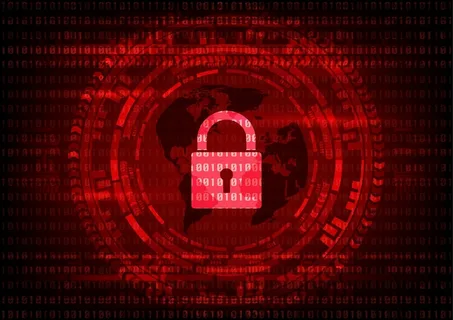The United States government has filed charges against Rostislav Panev, a citizen of both Russia and Israel, for allegedly being associated with the LockBit ransomware organization.
The DOJ revealed the allegations on Friday, and they are seeking Panev’s extradition. U.S. Attorney Philip R. Sellinger unsealed the criminal complaint in the District of New Jersey on December 20.
LockBit Developer Arrested in Israel for U.S. Extradition
The United States requested the interim arrest of 51-year-old Rostislav Panev in August in order to extradite him. Israel arrested him. Israeli authorities are holding Panev, a prominent LockBit developer, while extradition procedures drag on. According to reports, Panev developed and maintained the tools that LockBit uses to launch LockBit ransomware arrest worldwide.

Allegedly, he also codes malware that infiltrates victim networks, disables antivirus defenses, and prints ransom notes on linked devices. Law enforcement allegedly found evidence linking Panev to payments totaling over $230,000 in cryptocurrency for his work with the gang. Ransomware attacks associated with LockBit have targeted multiple high-profile organizations. Boeing Company, the Royal Mail of the United Kingdom, and the Industrial and Commercial Bank of China are among the victims.
Groups like LockBit often encrypt victims’ data or disable systems as part of their LockBit ransomware arrest. After that, they force victims to pay a ransom to regain access. According to Sharon Nahari, Panev’s lawyer, her client was a professional software developer. She claims that Panev engaged in secret Telegram conversations with LockBit and created tools for the organization, unaware of their intended use.
Panev has complied with authorities and disclosed information on his role, according to Nahari. The crackdown on LockBit has been going strong for the past few months. U.S. and British authorities confiscated the group’s and its affiliates’ servers and websites in February. Investigators also uncovered data on victims and thousands of decryption keys. In order to help victims recover their stolen data, officials asked that they get in touch with them.
Global Crackdown Targets LockBit Ransomware Network
With 1,800 victims in the United States alone, the ransomware gang LockBit has infected more than 2,500 devices across 120 countries since 2019. Its scope encompasses the government, schools, the healthcare system, and essential infrastructure. Affiliates use malware to infiltrate networks, then demand ransom or threaten to release stolen data without payment.

The United States, Israel, France, the United Kingdom, and Europol are among the many international law enforcement agencies that have stepped up their attempts to dismantle the group. Seizing critical websites and servers, the United Kingdom’s National Crime Agency damaged LockBit’s infrastructure early this year. Russian national Mikhail Matveev was one of seven people accused of being involved since 2023; he was associated with the Babuk, Hive, and LockBit ransomware.
The hacking group “Operation Cronos” gained access to LockBit’s networks in February 2024 and stole information, affiliate lists, and more than seven thousand decryption keys. Victims were able to evade paying the ransom using these keys.
Russian citizens Artur Sungatov, Ivan Kondratiev, and Dmitry Khoroshev, better known as “putinkrab,” who was allegedly the operator of LockBit, were hit with fresh allegations this year. The reward for the capture of Khoroshev is $10 million. Notably, Mikhail Vasiliev and Ruslan Astamirov, two affiliates, entered guilty pleas in July. Law enforcement agencies are continuing to work together on a global scale to undermine LockBit’s operations.
Final Thoughts
The ongoing crackdown on LockBit exemplifies the increasing cooperation among police forces worldwide in the fight against cybercrime. The global surge in actions by governments toLockBit ransomware arrest aimed against vital infrastructure is reflected in the recent arrests of individuals like Rostislav Panev. The clear message is that no cybercriminal is immune to extradition or legal punishment. An increasing number of notable individuals are succumbing to this dilemma. Protecting sensitive data and systems requires improved cybersecurity safeguards, cross-border collaboration, and ongoing vigilance in the face of ransomware threats.
[sp_easyaccordion id=”2837″]

